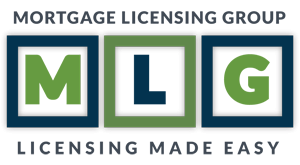Surety Bonds: Mortgage Broker License Requirements
 Becoming a licensed mortgage broker includes many steps as well as the fulfillment of multiple state requirements. Some of these requirements are federally-mandated, while others are regulated by the state in which the broker intends to operate. One frequently-encountered condition is that the mortgage broker license applicant obtains a surety bond; nearly all states have this requirement.
Becoming a licensed mortgage broker includes many steps as well as the fulfillment of multiple state requirements. Some of these requirements are federally-mandated, while others are regulated by the state in which the broker intends to operate. One frequently-encountered condition is that the mortgage broker license applicant obtains a surety bond; nearly all states have this requirement.
How Surety Bonds Work
Surety bonds are essentially a contract between three parties, the principal, the surety, and the agency/obligee. Each has a unique role.
- The principal is the individual or organization (mortgage broker) in need of the surety bond. It is purchased to guarantee the performance of their professional duties.
- The surety is the insurance company that issues the bond, which provides funding if the principal fails at their professional role.
- The agency/oblige is the entity that requires the bond; frequently, it is a governmental agency.
Surety bonds are legally binding contracts that protect the broker’s clients. If the mortgage broker fails to comply with any state or federal regulations, the client can then seek damages. Similarly, if the consumer suffers any financial repercussions due to the broker’s actions, they can make a claim against the bond. Legitimate bonds are used to compensate losses, and the broker would be required to pay back the surety for any compensation it has extended. Surety bonds are frequently required as a part of the licensure process, and mortgage brokers cannot begin practicing their profession without proof that a surety bond has been obtained.
State Requirements
Surety bond requirements often range somewhere between $10,000 and $150,000, although these amounts are determined by the governmental regulatory agencies in each state. You must check with your state to determine the amount you will need to secure for a surety bond. Proof that the bond has been obtained will be necessary before license approval and during any subsequent renewals.
Securing a Surety Bond
Obtaining your surety bond can be done online, and it is often a simple process. Similar to purchasing an insurance policy, you can request quotes from multiple insurance companies. The process can be somewhat complicated if the mortgage broker licensee seeking the bond intends to operate in more than one state or jurisdiction. In these instances, they may be required to obtain separate surety bonds for each state or jurisdiction to comply with applicable legal requirements.
Surety bonds are paid through premiums, similar to an insurance policy. Bond premiums in the mortgage industry usually range from .75 to 1.25 of the total aggregate. Although this is the standard range, many factors can determine the premium’s actual price; the applicant’s credit score is the biggest one. Professional experience and current assets may also impact the premium. For instance, mortgage brokers just entering the profession may have a higher premium than those with years of experience.
Securing a surety bond can be difficult if you have bad credit. You may have to shop around to even find an agency that will approve your application for a surety bond. Your individual credit record is used to calculate the probability that you would be able to pay a claim against you if one arose. And even those agencies that will approve a candidate with a poor credit record will likely charge a much higher premium. If your surety bond’s cost is high, one of the best ways to lower the premium is by focusing on increasing your credit score and repairing your credit record.
Benefits of Surety Bonds
The most apparent benefit to surety bonds is to the broker’s customers, who benefit from fraud and malpractice protection. However, for principles, the requirement to obtain a surety bond often provides an incentive to gain a thorough understanding of state and federal laws and regulations, as well as any contractual obligations you may have to clients and business partners. And understanding these regulations better can reduce the risk of dissatisfied customers or legal violations – which can all serve to make the mortgage broker better at their job.
And since the broker’s assets are at stake since the agreement serves as a legal contract in which the broker must repay any paid claim, there is a strong incentive to comply with all laws and regulations. For many individuals pursuing their mortgage broker license, surety bonds may seem like another hurdle, you must jump through in the long process. But the reality is that they bring a ton of personal protection and business value to your new professional endeavor.
The Mortgage Licensing Group, Inc. is a full-service mortgage licensing firm headquartered in Southern California that is recognized throughout the industry as an experienced and reliable service provider. Established in 2006, our company has been on the forefront of the ever-changing rules and regulations, helping alleviate the often daunting task of meeting the diverser state licensing requirements for our clientele.

